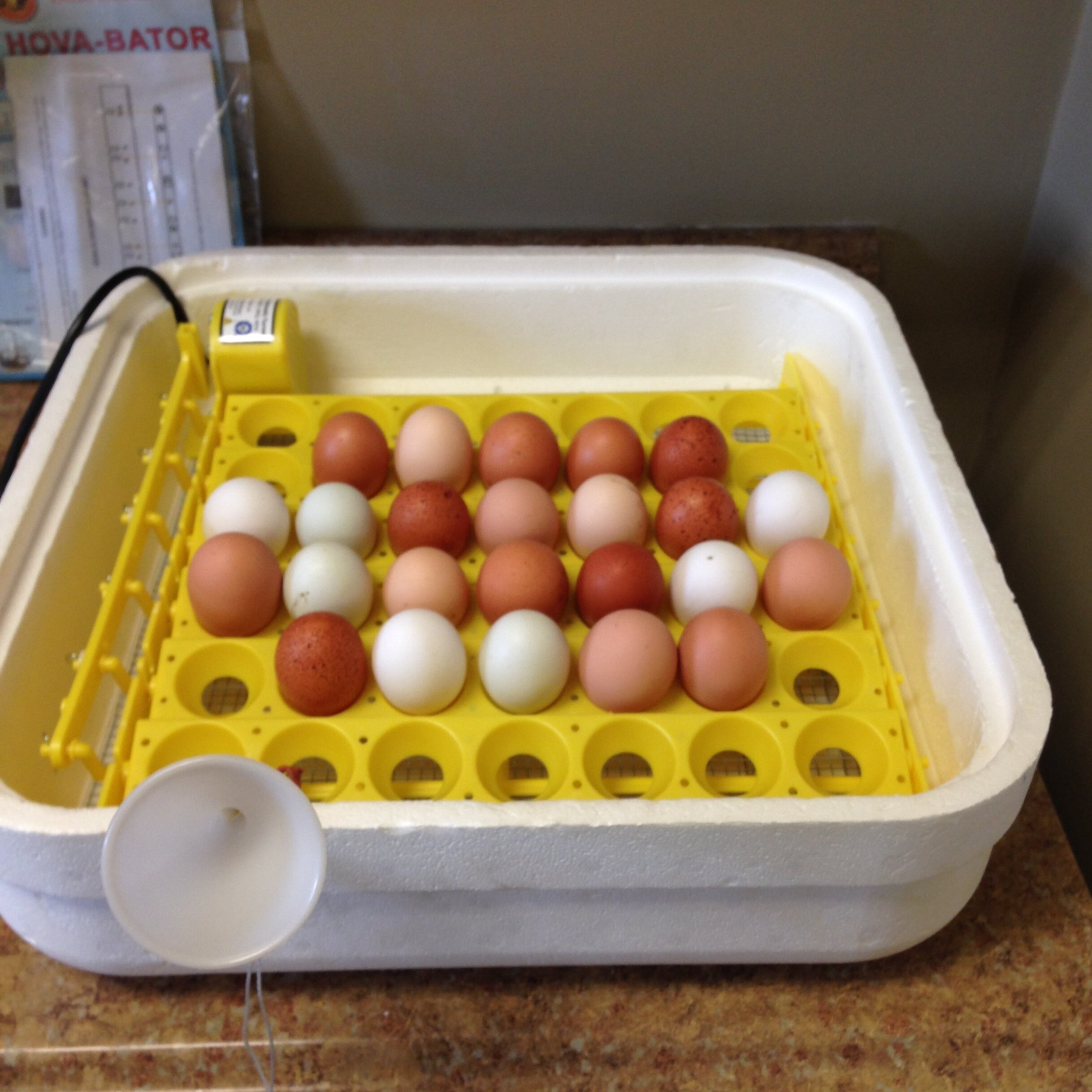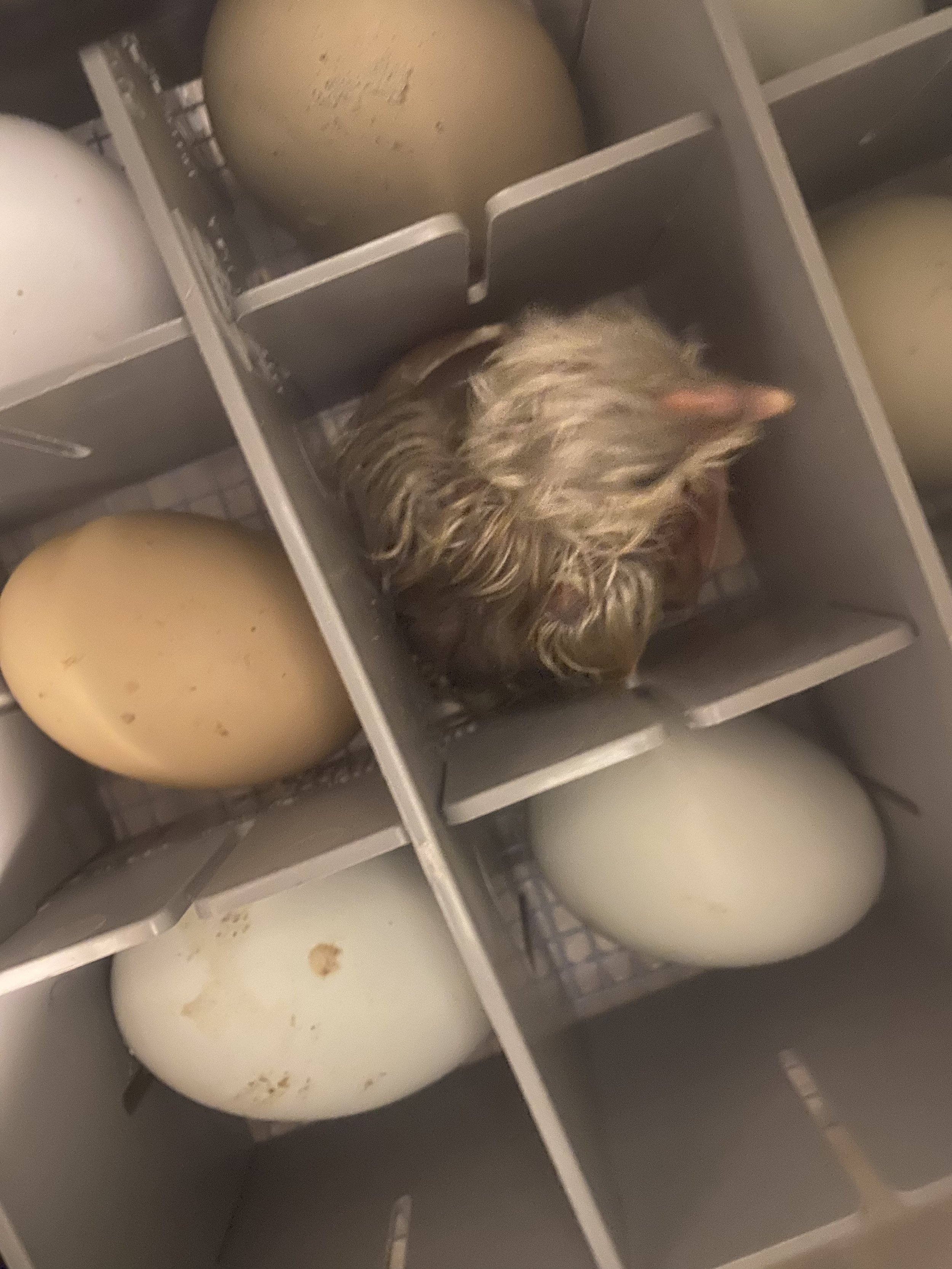Chicks in Science Class
I was transferred to a new teaching position several years ago, and the previous biology teacher had a class project of hatching chicken eggs in class and enjoying the baby chicks with his students. Of course this was everyone’s favorite thing in the world, including both staff and students, so I felt a lot of pressure to carry the chicken baton forward and learn how to hatch chicks myself.
While I blame peer pressure for getting me started, the idea of having chickens has always appealed to me. I have a fascination with farm life and pioneer living. The hard work, tolerance for adversity, ingenuity, and sheer grit it took to survive in the world only a century ago blows my mind. I really just don’t know how they did it. And everyone did it. Almost everyone lived on a farm and knew how to grow their own food and take care of themselves without grocery stores. I spend an embarrassing amount of time wondering how I would have done given nothing but a couple of acres of land and a handful of seeds. Somehow my ancestors pulled it off. I feel like it must be there inside me somewhere.
My first batch of eggs in the incubator
My biggest thrill as a gardener is growing something myself and then eating it. In the same way I knew I would love to have fresh chicken eggs everyday from a chicken I took care of myself and, maybe, even a nice chicken dinner one day. So when I was presented with an incubator, heating lamp, kiddy pool, the phone number of a farmer with eggs, and a little peer pressure, I took the baton and started running.
I read every chicken book in the library and got advice from Farmer Geri and others. I put those eggs in the incubator (pointy side down) and plugged in the egg turner (so the yolks don’t adhere to the sides of the eggs) and waited 21 days with my student audience.
Watching a seed sprout is a miracle. It never gets old. I am amazed every single year when my seeds start sprouting and reaching towards the sun. Watching a chick hatch is just the same. I can’t believe it works. All you have to do is get the egg temperature up to 99.5 degrees, and three weeks later–voila!--you have a chicken. Unbelievable.
But hatching chicks is harder on a person than growing seeds. If a seed doesn’t sprout it doesn’t seem like a sad tragedy, but when your chicks don’t hatch it feels like death. And failure. Like it was your fault. I got 9 healthy chicks out of 22 eggs that first year, so most of them didn’t even make it out of the egg. The hardest part was the ones that made it out of the egg, but then had something developmentally wrong, and either expired on their own or had to be culled. That’s a whole un-fun story in itself, which I will save for another time.
But the healthy survivors were an absolute delight and brought so much joy to myself and everyone else that I was officially hooked on chickens and have been ever since. They are the cutest, funniest, most entertaining little fluff balls you can imagine, and chick week is the highlight of the year at school now.
The chickencam is part of the Hatch Week tradition. With a cheap webcam and live YouTube stream I’ve been able to share round-the-clock chick hatching action with students, staff, friends, and family, to the delight of all. It has really helped my students stay engaged with biology in the last couple weeks of the school year when everyone is DONE and not really interested in showing up to learn anymore.
The chicks stay in the kiddy pool in my classroom for a week while we learn about bird adaptations and do observational studies on chick behavior. Turns out that chicks prefer Latin dance music over rap or classical, and a chick placed on green paper is more likely to poop than a chick placed on red paper. Did you know? Well, now you do. After a week of fun-filled learning I am always glad to box up the chirping little turd machines and bring them back to the care of Farmer Geri, who is very glad to have baby chicks without the bother of incubating. It is a mutually beneficial relationship that has been keeping students happy for many years now.
My own journey with chickens has continued and I have graduated to having a couple of my own hens in my backyard. I will introduce you to them soon.
A freshly hatched little friend
Chicks hanging out in biology class




